A Letter to Caretakers
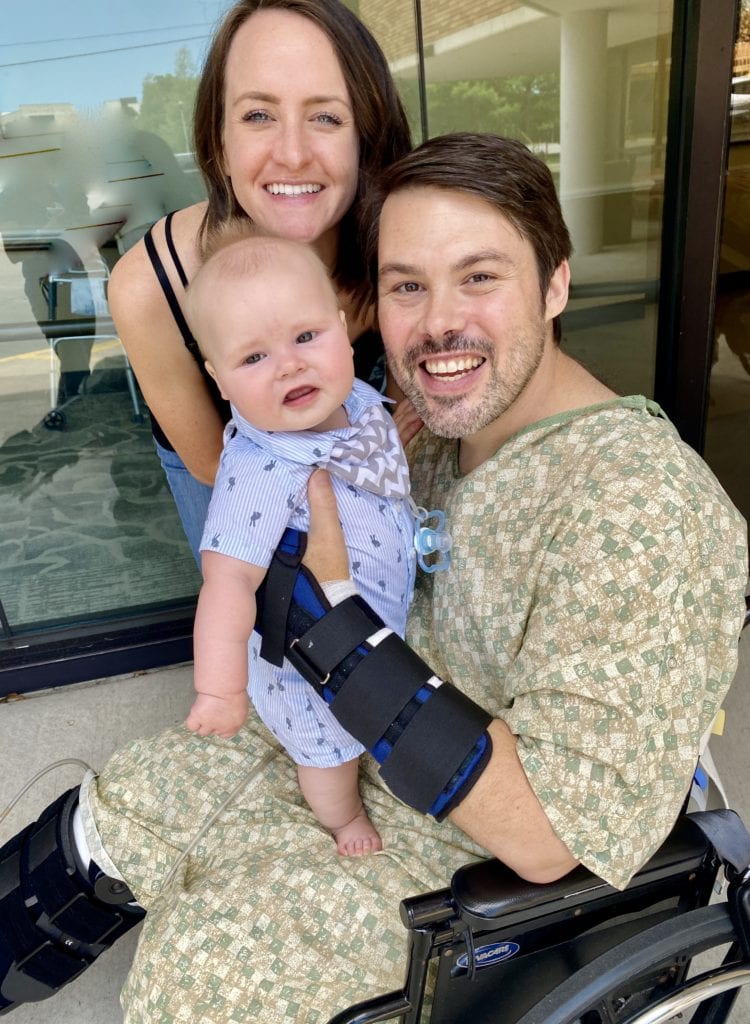
You’re probably reading this for one of two reasons: you’ve been following Nate’s recovery process since his car crash in April 2020, or you’re someone who is a caretaker and you want some support. If you’re the former, welcome. I always love getting to chat with you and share my story. It’s ok to be curious and want to know what’s going on in someone’s life who you follow on instagram…I feel like a lot of us are friends, although we haven’t met in real life. But I’m going to be writing this to the latter, because you are the ones who have suddenly been thrown into a position you did not want or really ever think about being in: someone’s caretaker. It’s a group of people that I never thought about before this year; if someone was injured or ill, I thought about and prayed for them. I sent gift baskets or homemade dinners to the entire family, and of course thought of the emotional pain that the healthy spouse was feeling, but I always thought the healthy spouse isn’t physically hurting…they’re ok. After plowing through the past 8 months or so, I have a new love and desire to reach out to the caretakers and express my support and goodwill. Basically, this is a “carry on, soldier” sort of letter, but it’s to the caretaker, not the ill one.
I’m writing this from the perspective of a wife who has an injured husband. I wrote about the events of the car crash here if you want the details of what happened. Since that blog post, I can tell you that Nate had two compound fractures in his leg, along with about 10 other fractures from the knee down to the toes, and a broken wrist, plus the fasciotomy, a much bigger healing ordeal than any of the broken bones. He had to wear a wound vac for two months until the fasciotomy opening healed enough for a skin graft. During this time, he had a wound vac change from a nurse every-other day, which was a painful hour-long procedure that happened at the wound care clinic, and then eventually in our living room with home health. He spent a month doing hyperbaric therapy, a chamber that delivers 100% oxygen to help crush victims recover more quickly. He went through 7 surgeries to get his leg healed, including the fasciotomy, inserting lots of hardware, a skin graft, and then later removing some hardware and installing new hardware. He is starting his 9th month of living with open wounds, which means that he can’t shower without wearing a waterproof silicone sock on his leg, he can’t go swimming, etc. We’ve been communicating with his trauma surgeon, plastic surgeon, wound care doctor, physical therapist, pain doctor, family health doctor, edema specialist, plus the army of nurses and nurse practitioners, techs, medical assistants, therapists, and other surgeons to deal with other surprises that have come up along the way (like a recent trigger finger that might mean another small surgery next month.) He still has several months of wound treatments ahead, and lots of physical therapy. He’s currently able to put weight on his leg and walk slowly with an AFO and a cane.
In the hours following the accident, I remember a feeling of adrenaline and almost, well, excitement. I called my sister in tears while I was driving home from the crash site and asked her to drive down to Austin to watch my baby while I went to the hospital. My voice and hands were shaking and blood was pounding in my ears, and it almost felt like a James Bond movie soundtrack was playing in the background of my life. The initial feeling was: I am going to keep my act together, I’m going to be a calm and loving mother to this 5-month-old baby in the back seat, and I’m going to be Nate’s best cheerleader and emotional support, and I’m going to research all the medical terms that I learn along the way and know exactly what’s going on. And I’m going to get the house ready for him when he comes home from the hospital and make up a bed on the couch and cook his favorite foods. And I’m going to call his parents and tell them that he was in a car crash (but I’ll do it in the calmest and most loving way I can) and I’m going to be the best most super-deluxe caretaker on the planet and we’ll overcome this and it’s going to be so hard but I’ve got his!” (Cue the key change in the soundtrack, followed by a big swell of inspirational music from the horn section.) By the way, I’m sharing this with you so you can compare it to point #4 down below.
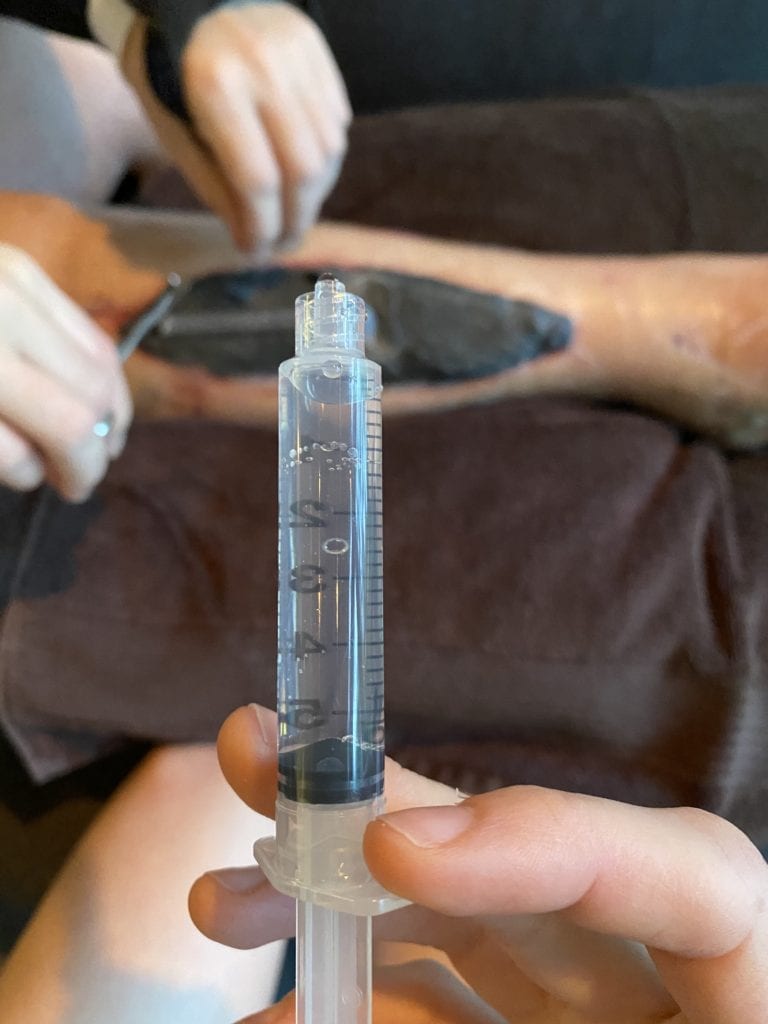
I’m not a nurse or doctor, nor I have never wanted a career path in the medical world, but I’m starting to be familiar with the world of caretakers. If you’re someone who isn’t medically trained, but you’ve suddenly been thrown into the world of caretakers, I would first of all like to give you a big hug, offer you a cup of tea (or a large pour of wine, your choice…) and invite you into my living room for a long chat on the couch. I would love to hear all of the things going on in your life and all the ways your world has turned upside down.
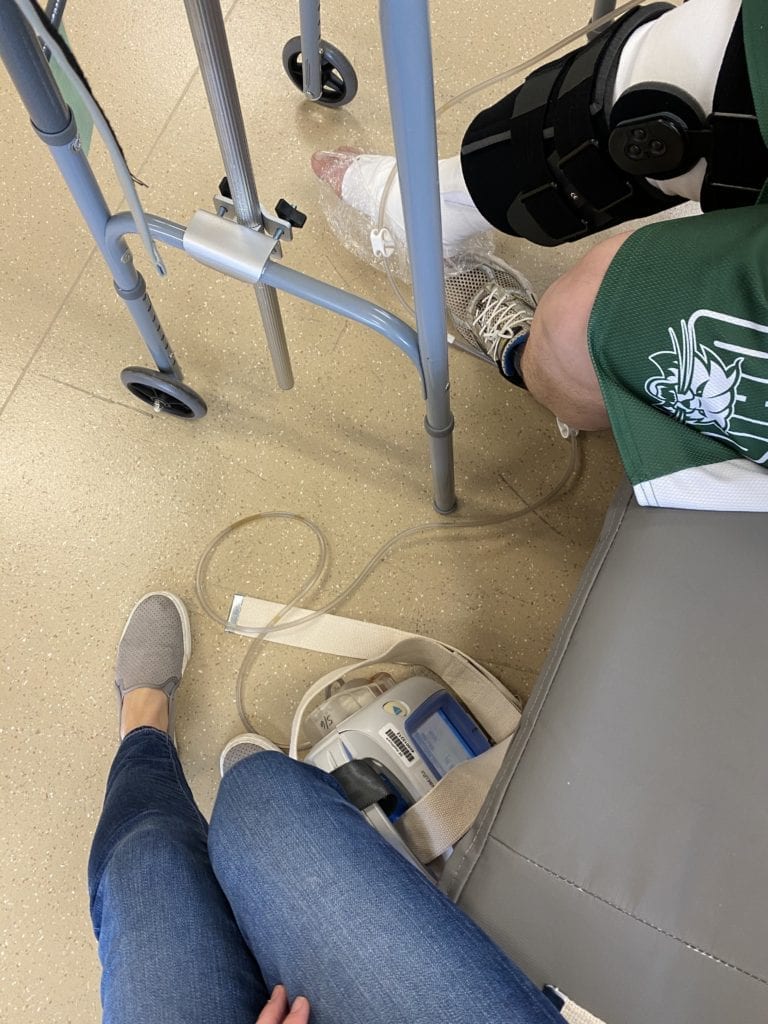
In the midst of this chapter of our lives, I’ve recognized a few things. Maybe these will bring you a bit of peace in the way that they did for me:
1. Your world just changed drastically. Maybe it’s not such a peaceful thing to say, but you might need someone to affirm this for you. As you’re caring for a loved one, everyone can see that her or his world has changed, but I want to recognize that yours has, as well. Every little aspect of it, from the moment you wake in the morning until you fall asleep, is different than it used to be. Your career aspirations, relationships with your friends, ability to have “me” time and unplug, and literally every little action that you do throughout your day now has to be tweaked in some small way. It might go back to the way it was before, and it might not. But you’ll figure out this flavor of “different,” ok? You will. It is so hard right now, but you’re going to figure this out.
2. Joy lives in the little places. Another thought that took me a long time to believe. As Nate lost his ability to walk, his quality of life changed a lot. As his changed, so did mine. It was very easy for me to mope about the lost experiences (we might never be able to enjoy trips like this one where we walk 8-10 miles a day in big cities), or live in fear about all of the “what ifs” (there are a million! What if he can’t play soccer with our son in 5 years? What if he can’t attend music festivals and walk around Zilker Park? What if he has to walk with a cane for the rest of his life? And so on.) After lots of Eckhart Tolle (please read this book if you’re living in a painful place as a caretaker), I’ve been learning that all of my fear lives in the past and the future, but if I can really live in my present moment I’ll discover that the “right now” is always pain-free. It’s a concept that took me a long time to grasp, and I still struggle with it sometimes. But when I can live fully present and fully aware, I realize that I can find bits of joy in the moment I’m in right now.
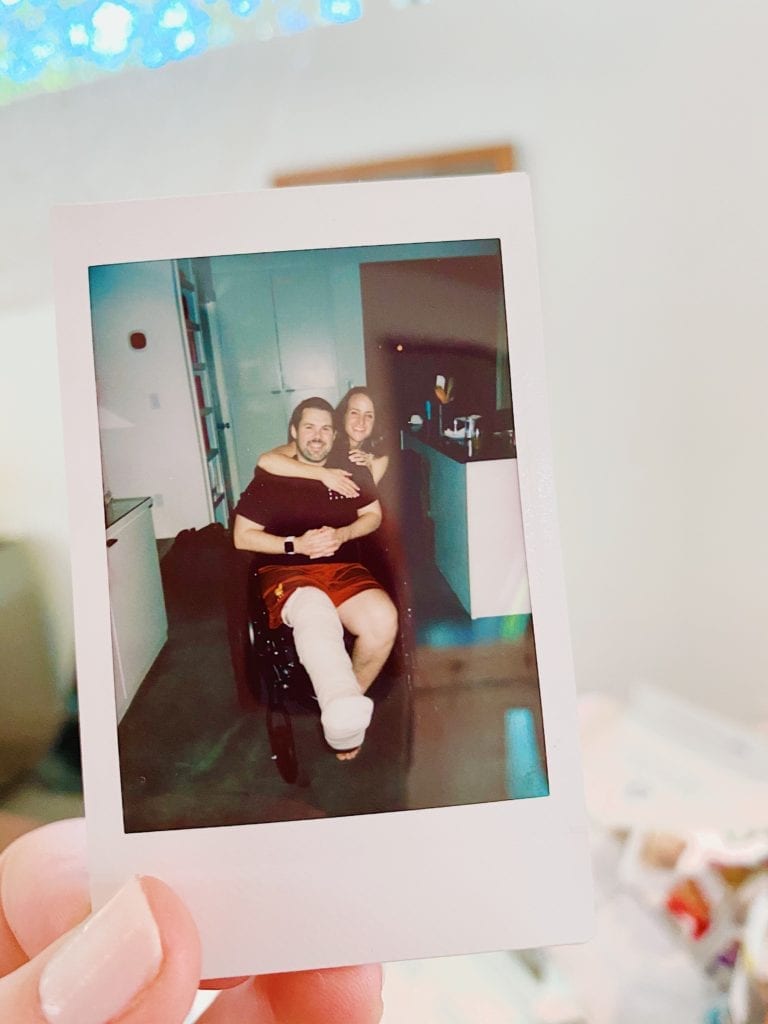
3. I signed up for this. This thought took me a long time to create, recognize, and fully believe, but once I got rid of the “I never signed up for this” thought and switched it, I felt so much more capable and peaceful. For the first few months, I believed that I wasn’t “supposed” to be a caretaker. I’m young (29-years-old when the car crash happened) and Nate and I have only been married for 3 years. I shouldn’t have to care for him (apart from short bouts of stomach flu, or little sprained ankles) until we’re old and near the end. But the reality is that I literally stood in front of my dearest friends and family and vowed that I would care for him in sickness and in health. And sickness happens in life. It just does. And so, while it doesn’t make the task any less, it does help me a bit to know that I committed to this, and so I will and must take care of my husband. Because I said I would, and I want to do it.
4. You do not have to love this part of life. I ran out of sympathy and grace 4 days before Nate came home from the hospital. Yep…my quota of grace didn’t even last until Nate was home and the real work began. I shared a lot of our story on instagram, and I would get responses of “you’re handling this so well!” which was sometimes true and sometimes false. My rule was that I would only get on instagram when I was in a healthy, positive mindset, which is what you saw on social media. When I was down, complaining, blaming Nate, etc., I didn’t want to put that energy out in the world. But my friend, let me tell you that there have been hundreds of times on this journey where I have sunk so low. I’ve made Nate feel guilty for not being able to help out more, for always being the one who “gets to” (ha) sit on the couch while I give Milo baths or cook dinner or run to the grocery store. I have said horrible, hurtful things to him. Please hear me when I say that these are not good things to do, but they are normal because you are a human who is hurting too, and you will probably lash out. In most instances, there aren’t a lot of people to blame (you can’t yell at cancer, or the bike that swerved on a slippery road, or the mountain that caused a skiing accident) and so you get mad at the person you’re taking care of. It’s not fair to them, but in our safe little bubble here, let me tell you that I 100% recognize why you’re doing that. I got mad at Nate sooo many times. (Something that helped me tremendously was lashing out in my journal, if I could catch the anger in time. I look back at rage-filled pages of April – July 2020 in my black moleskine journal and feel thankful that I wrote them down instead of verbalizing them to my family.) This is really hard, and you’re going to feel angry. I feel so angry, too.
5. No one will understand how much work this is. People mean well when they say “I’m so glad that he’s ok!” or “that must have been really hard while he was in the hospital!” It’s ok that they say things like that, because they are full of kindness. But I want to recognize that the hardest parts of being a caretaker are the months and months of living life with this new injury or sickness. The 27-step process that it takes to get in and out of the car for daily appointments. Your loved one’s hour-long bedtime routine that must be finished before you can begin getting yourself ready for bed (only to be woken in the middle of the night because of an emergency “the wound vac shut off! My meds are gone! The pain is too much to bear!” and you must figure it out at 3 am because you’re the healthy one.) It’s hard to express how much work you have to do right now, and I want to offer that you don’t need everyone to understand. As long as you have your core support people (a sister or a best friend) who can understand, you’re set. I realized I could save a lot of energy by not having to express all of my emotions in every single social media update, and if someone commented “thank god he’s ok!” I could just reply with “yep!” and move on to my next task.
Alright friends, I’m signing off for the rest of 2020. If blogging had seasons like podcasts do, this would be the end of season 4. I’m going to enjoy the holidays with my family, and I’ll start 2021 with a fresh, rested brain. I’m finishing the year with this blog post because I feel ready to stop talking about it. I’ve shared so much of Nate’s healing journey publicly, and I feel like the time has come for me to move inward and keep the next few months of our journey internal. We still have a long way to go (literally as I’m typing this up he texted me with some bad news from the wound care clinic that could mean this journey goes on much longer than we were planning), but I’m going to be keeping it a bit more private in 2021, simply because that’s what feels right to me for this next stage.
Although I was not in the car, this car crash completely wrecked me and broke me down and forced me to regrow a new version of myself. I’m a different person than I was in April 2020. I like her a lot, and I’m excited to start a new year with the new mindset that I’ve had to develop from this experience. If you’re a caretaker, my hope is that you’re able to hang on, through the stress and the weeds and the deep dark days, and recognize that there is a strength in you that you didn’t know you had until you needed to find it.
Peace, light, and love to you.
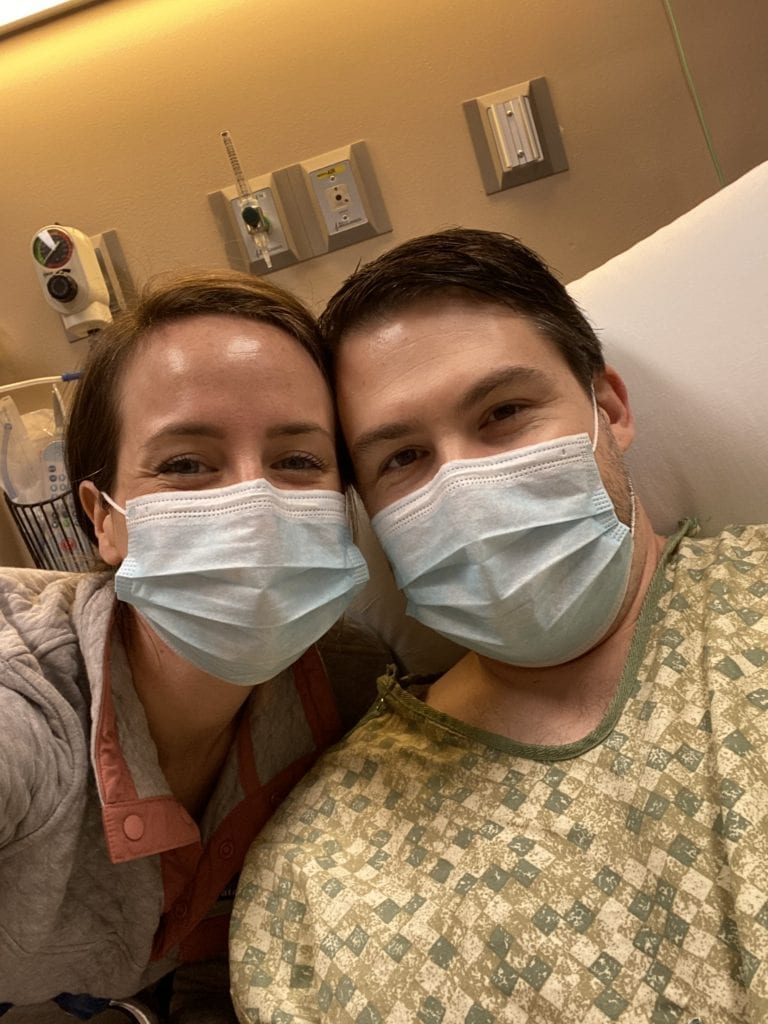
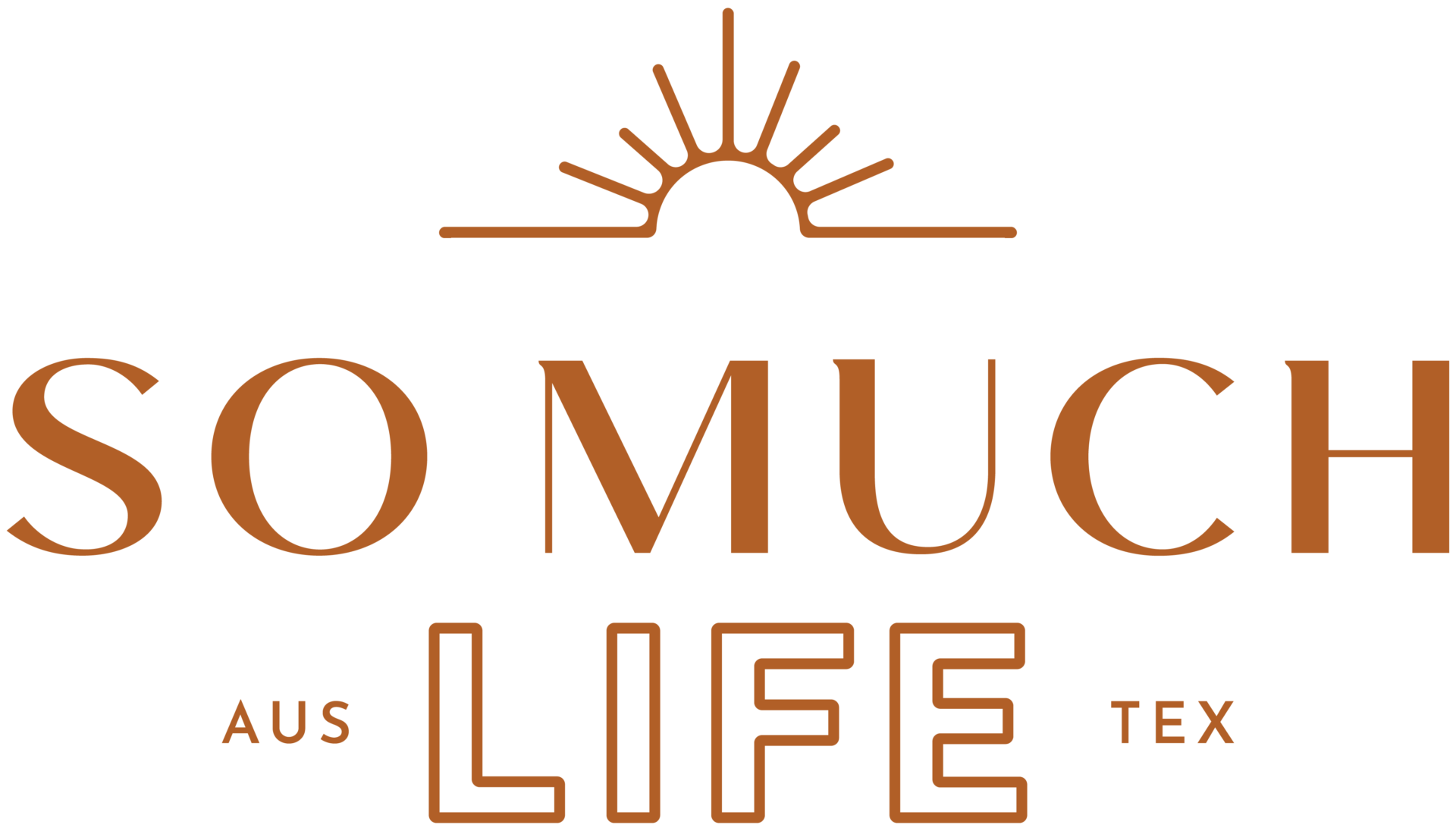
Thank you for sharing this! I’ve been following along with your journey this year and am sending you all my good vibes. I cannot imagine what you are going through with Nate on top of a global pandemic! I know you are a type 3 enneagram and I am too, so I totally relate to what you’re saying about getting “excited” about these types of things but point #4 makes so much sense, and is something for me to think about the next time I endure a crisis (micro or macro) in life. I also love point #3. I hope you and your family have a wonderful holiday!